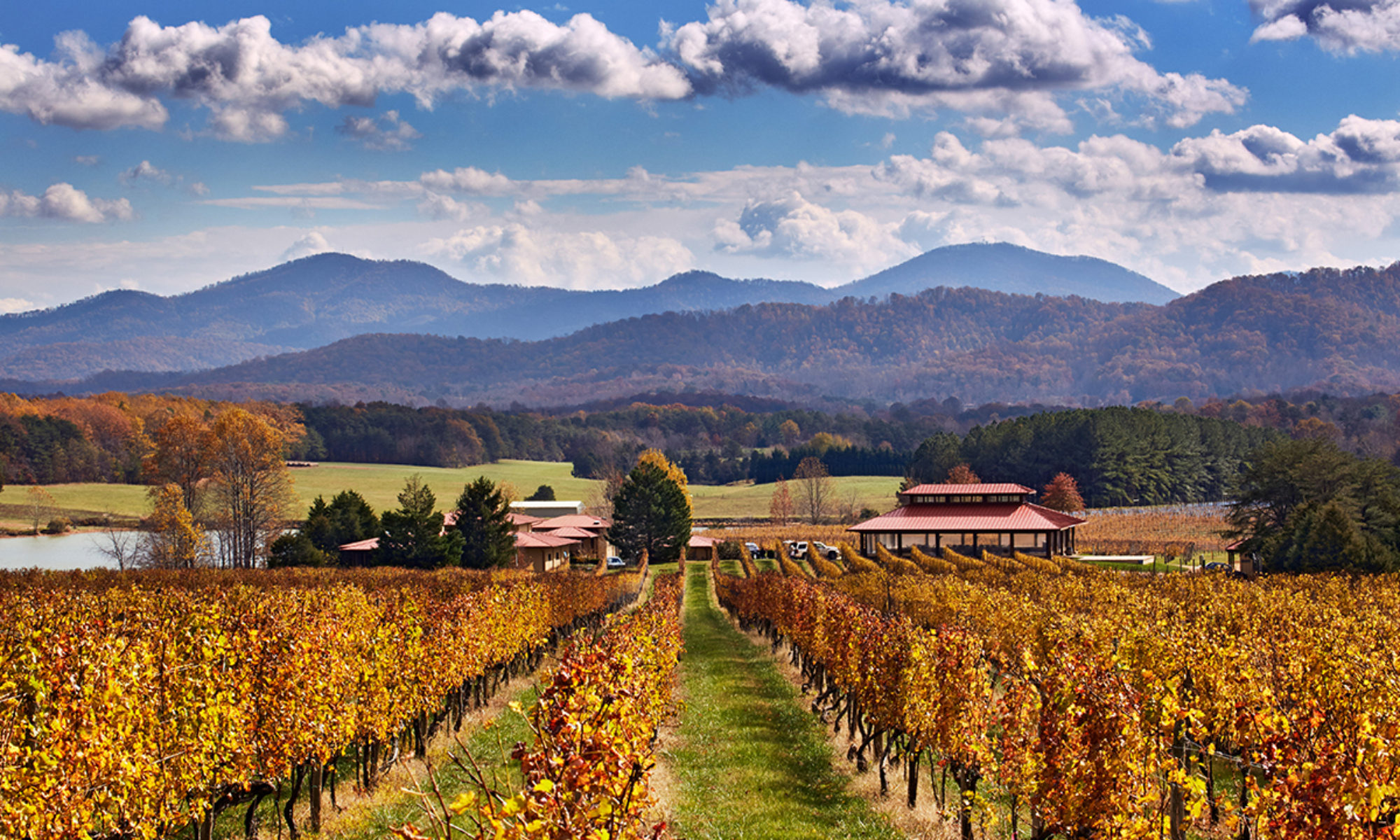Located south of Charlottesville on Carter’s Mountain road, nearby to Blenheim and Trump wineries. The tiny tasting room in the woods does no visual justice to the scope of the illustrious Virginia career of Gabriele Rausse, one of the acknowledged pioneers of wine-making in Virginia (nor, for that matter, does the exceedingly discreet winery website, one of the sparsest you will run across). The first winemaker at Barboursville Vineyards, way back in 1976, Rausse has played an outside role in the industry, especially in the Monticello area. He started his own winery in 1997; his wines have been famously hard to find – including being rarely entered in tasting competitions – and the current small tasting room did not open until almost two decades later, in 2015.
Wine. One of the Top 100 wineries of Virginia. The quality of Rausse’s wines go by reputation, unless you’ve tasted one yourself – this is not a believer in the tasting competitions which allow for comparisons across hundreds of bottles. Hugh Johnson’s authoritative annual global wine guide gave Rausse two stars in his 2020 edition. His hand-crafted, small production wines are made in a “gentle and soft” style, rather than the tannic and highly structured style often sought after at competitions. Varieties include Nebbiolo, Pinot Grigio, Chardonnay, Roussanne, Cabernet Franc and Cabernet Sauvignon. Rausse has recently started planting a grape called Chasselas Doré. The variety is among the first that Jefferson attempted to grow at Monticello, and is prized as a table grape around the world. It is also grown extensively in Switzerland to produce wine. So a Virginia wine novelty is on its way, once again courtesy of Gabriele Rausse.
Setting. An interesting but tiny tasting room set in the woods, discreet as everything else connected with Rausse (yes, he is Italian, but it just goes to show you never know).
Stories. Virginia wine pioneers — Gabriele Rausse. Back in 1976 – an eternity by Virginia wine standards – the Zonin family took a bet on Virginia winemaking. Now the Zonins were not just anybody – they were, and still are, arguably the largest wine producers in Italy. They purchased the Barboursville Estate and went looking for someone to make wine there. And they found Gabriele Rausse, son of an acquaintance from nearby Vicenza, in northern Italy. The rest, as they say, is history. Gabriele found Virginia’s Piedmont to have similar climate to Vicenza’s, launched Barboursville as a premier winery, and went on from there. He helped establish the Kluge Estate Winery (since bought by the Trump family), and dozens of other wineries in the Charlottesville area. In 1995, Thomas Jefferson’s Monticello brought him onto the staff, and he is to this day Director of Gardens and Grounds at Monticello, where he oversees vegetable gardens, orchards and woodlands in addition to the vineyards that replicate some of the varietals planted by Jefferson (his favorite Jefferson quote is “It is neither wealth nor splendor but tranquility and occupation which bring happiness”). In 1997, two decades after arriving, Gabriele finally launched into his own with the (hard to find) Gabriele Rausse wine label. Two decades after that, in 2015, four decades after helping launch Virginia wine, he opened a tasting room to the public. One of the best stories from this virtual encyclopedia of Virginia wine came in an interview with Southern Foodways, where Gabriele remembered that the then Commissioner of Agriculture for Virginia, on meeting Gabriele in the 1970s and listening to his plans for Barboursville, responded by taking out a cigar and telling him that the future of Virginia was in tobacco, not wine. The entire meeting launched into why planting wine grapes in Virginia was nonsense. A professor of plant pathology for Virginia Tech chimed in and said about the vineyard idea that “as long as you throw away your money or the money of the people you work for, that is perfectly alright with us. The moment you get a Virginia farmer excited about something that doesn’t make any sense, we have the moral duty to stop you.” A good thing they didn’t stop him, after all.
